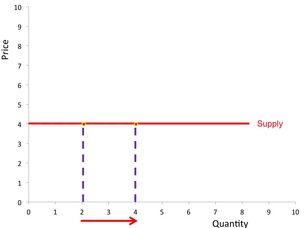|
Subject 22. Standard VII (B) Reference to CFA Institute, the CFA Designation, and the CFA Program
#analyst-notes #guidance-for-standards-i-vii
VII. RESPONSIBILITIES AS A CFA INSTITUTE MEMBER OR CFA CANDIDATE
B. Reference to CFA Institute, the CFA Designation, and the CFA Program.
When referring to CFA Institute, CFA Institute membership, the CFA designation, or candidacy in the CFA Program, Members and Candidates must not misrepresent or exaggerate the meaning or implications of membership in CFA Institute, holding the CFA designation, or candidacy in the CFA Program.
CFA Institute's members, CFA charterholders, and candidates in the CFA program must utilize their designation in the correct manner so as not to mislead the investing public. Since achievement of the CFA charter signifies a certain degree of knowledge, the public and clients expect a certain degree of knowledge when encountering the CFA designation.
CFA Institute membership
Requirements to be granted the right to use the CFA or Chartered Financial Analyst designation:
- Pass all three levels of the CFA program.
- Receive the charters.
- Make an ongoing commitment to abide by the requirements of CFA Institute's Professional Conduct Program (including filing an annual professional conduct statement).
- Due-paying (every year) and good standing.
If a member fails to meet any of these requirement, he or she cannot claim him- or herself to be a member.
Members should reference membership in a dignified and judicious manner; if necessary, this would include an accurate explanation of the requirements for obtaining membership.
Using the Chartered Financial Analyst designation
CFA charterholders may use the term "Chartered Financial Analyst" or "CFA" in a proper, dignified, and judicious manner (if necessary, with an accurate explanation of the requirements for obtaining the right to use the designation).
Referencing candidacy in the CFA Program
CFA candidates may reference their participation in the CFA Program, but the reference must clearly state that an individual is a CFA candidate and cannot imply that the candidate has achieved any type of partial designation.
- To be a candidate, a person's application should have been accepted, and he or she should be enrolled to sit for a specified exam (for which he or she has not received exam results or failed to sit).
- There is no designation for someone who has passed Level I, II or III of the CFA examinations.
- Candidates may indicate that they have completed Level I, II or III of the CFA program. However, candidates cannot imply that they have achieved partial designation even if they have passed all three levels of the exam.
About the CFA mark
- It is registered in many countries (along with Chartered Financial Analyst).
- It does not serve as an acronym, cannot be used as a noun, and should never be used in the plural or the possessive.
- Only CFA or Chartered Financial Analyst should appear after the charterholder's name. "John Smith, CFA," or "John Smith, Chartered Financial Analyst," is correct.
Applications
- Advertisements: can mention that an individual has passed all three exams on the first try, but cannot mention that an individual has accomplished what few others have done, or that the designation implies superior performance capabilities.
- Placing "CFA Level II Candidate" after a candidate's name implies that this a partial designation, which is a violation.
- The designation "CFA" cannot be listed in a typeset larger than that used for the charterholder's name.
Examples:
- Richard is a CFA (or Chartered Financial Analyst): WRONG!
- Richard is a CFA charterholder. He earned the right to use the Chartered Financial Analyst designat
...
|
